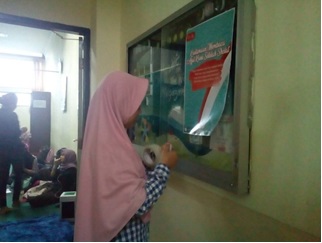
We as Muslims living in modern times are certainly inseparable from our role as missionary people. This connection is due to the obligation to carry out da'wah for everyone who has declared their faith in Allah and His Messenger. Ibnu Taimiyah in Majmu' Al Fatawa, 15: 166 explains that the law of conveying da'wah is fardhu kifayah or according to one's ability. In preaching we should call for goodness and prevent evil as Allah says in the QS. Ali Imron :104 and 110 :
And let there be among you a group of people who call to goodness, command (do) what is good, and forbid what is evil. And they are the lucky people (Ali Imran: 104
You Muslims are the best people born to mankind, (because you) command what is right, and forbid what is evil, and believe in Allah. If the people of the book had believed, it would have been better for them. Among them there are believers, but most of them are believers. (QS. Ali Imran: 110)
In verse 104 above, Allah recommends to Muslims that among them there should be people who actively preach in the way of Allah, namely providing explanations about religious teachings that must be implemented and providing information about prohibitions. Allah for Muslims. The growth of amar makruf nahi munkar among Muslims will guarantee their happiness in life both in this world and in the afterlife.
Meanwhile, in verse 110, Allah emphasizes that Muslims were created to be role models for other communities because they carry the mission of da'wah, namely inviting good and right actions, and preventing all evil and evil actions.
In da'wah itself, there are several methods of da'wah that a Muslim can use. First, fardiah da'wah, namely the method of da'wah carried out by someone to another person (one person) or to several people in a small and limited number.
Second, ammah da'wah, which is a type of da'wah carried out by someone using verbal media aimed at many people with the intention of influencing them. The media used is usually in the form of a sermon (speech). Apart from that, the term da'wah bil-Lisan is also known, namely the delivery of information or da'wah messages verbally (lectures or direct communication between the subject and object of da'wah).
Apart from that, Rasulullah SAW also taught his people to preach bil-haal, namely preaching that prioritizes real actions. This is intended so that the recipient of the da'wah (mad'u) follows the preacher. Preaching with deeds has a great influence on mad'u. Preaching with wisdom without criticizing, inviting without ridiculing, this is also a challenge for all of us in preaching.
In this multimedia era, Muslims can also preach bit-tadwin (through writing), either by writing in newspapers, the internet, magazines, bulletins or through books. Rasulullah SAW also reminded us that da'wah should be carried out in a wise and wise manner. Social media has been proven to have a significant effect on the spread of da'wah, especially to the millennial generation who tend to prefer digital information over information in the form of books and printed media.
We, who see the great potential of preaching through writing, try to put it into practice through our activities, namely Islamic Posters and Articles. We present advice and advice from the Prophet Muhammad in a light and attractive format through posters, articles and stickers. We do this in the hope that it can be a means of tapping the hearts of the FEB academic community to continue to remember Allah and His Messenger.

























